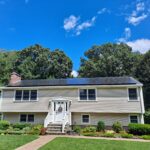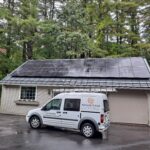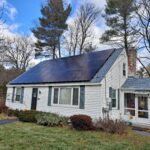There are many misconceptions about the viability of solar energy in Massachusetts. Yet, Massachusetts has been rated one of the top 3 states for residential solar payback in the country, and with good reason. The incentives, policies, and available sun (yes, I did say sun) make it an ideal venue for solar energy.
Let’s go over the common reasons why people think solar doesn’t make sense in Massachusetts, and why they are wrong.
1. Solar energy costs too much.
I’m not going to argue that solar energy requires a significant upfront expense, but the investment is estimated to pay itself back on residential installations in 6 years. This can be better or worse depending on the efficiency of the solar energy system and the incentives that are available to the homeowner.
2. The technology for solar energy will get better and cheaper.
There has been a downward trend for the last 10 years with solar component costs, ending today with the lowest solar panel prices the industry has ever seen. Reduced manufacturing costs and an oversupply in the market has created the downward effect on solar panels. Incentives in Massachusetts have also never been better. These incentives are in place to make renewable energy more competitive. As solar installation prices go down, you should see a direct correlation with incentives diminishing. As an installer, I don’t foresee the economics will look better than they do today.
3. We just don’t get enough sun in Massachusetts.
There is no arguing that Massachusetts doesn’t get the same amount of sun hours that California or Arizona does, but our available sun is about 80% of the sunniest parts of the Southwest U.S. and much greater than anywhere in Germany. Germany has the largest installed solar capacity in the world, and it’s about as sunny as Alaska! Unlike wind projects, most areas in the United States is ideal for solar as long as the system has the right orientation and no shading.
4. Solar is not a good investment.
This statement couldn’t be more wrong. Our proposals to Massachusetts homeowners show a 30% pre-tax rate of return on a solar installation over 30 years. We use a conservative approach toward our calculations and would be happy to walk customers through our logic at getting to this number. Where else can you make this kind of return? With the market being all over the place, let’s say fixed equities return about 3% and equities return about 8.5% A solar installation seems to be the clear winner.
5. Solar power sounds like it would be a lot of work.
With solar installation having no moving parts, there is virtually no maintenance required. It is best if the panels are kept clean, and oftentimes that can be accomplished with normal rain patterns.
For more information on if a solar energy system is right for your home or business in Massachusetts, Brightstar Solar would be happy to provide a complimentary evaluation and estimate.








#2 should be #1, and the list should end there! Furthermore, the longer you wait, the longer you pay your electric bill.
Everyone needs to understand that Now is the Time, as incentives generally do not improve. I live/work in NJ and we have already seen massive cuts in rebate checks this year alone. Now is the Time! (did I already mention that?)
Pingback: Tweets that mention 5 Misconceptions About Solar Energy in Massachusetts — BRIGHTSTAR SOLAR -- Topsy.com
Your article helped me a lot, is there any more related content? Thanks!
Your point of view caught my eye and was very interesting. Thanks. I have a question for you.
Thanks for sharing. I read many of your blog posts, cool, your blog is very good.
Can you be more specific about the content of your article? After reading it, I still have some doubts. Hope you can help me.
Thanks for sharing. I read many of your blog posts, cool, your blog is very good.